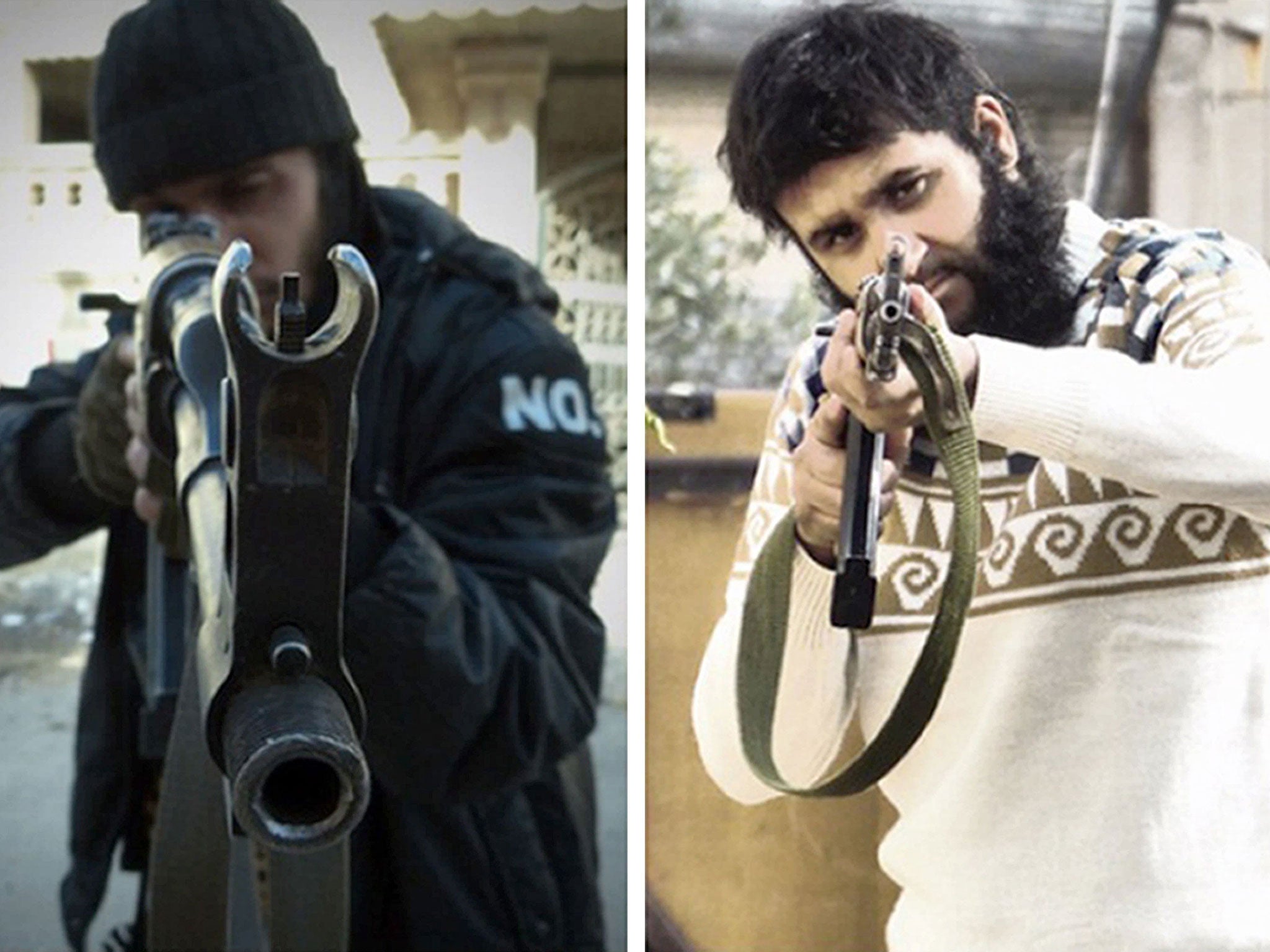Birmingham terrorists: Two British men who spent eight months fighting in Syria admit terror offences on UK return
Pair were found with traces of 'military-grade explosives' on their clothes and with 'thousands' of warzone photographs on a digital camera

Two British men who spent eight months fighting with rebel groups in Syria have admitted preparing to carry out terrorist attacks.
The pair, childhood friends who grew up in Birmingham, were arrested at Heathrow Airport when they came home in January.
Woolwich Crown Court heard that Mohammed Nahin Ahmed and Yusuf Zubair Sarwar, both 22, had made their way out to the war-torn country explicitly in order "to do jihad".
West Midlands Police said that while they were in the UK the pair had carried out research, bought equipment and contacted Islamist extremists, before travelling a well-trodden route via Turkey to get inside the battle lines.
Today they each admitted one count of engaging in conduct in preparation of terrorism acts contrary to section five of the Terrorism Act.
Ahmed, who was born in Bangladesh, moved to Britain as a child, while Sarwar, who is of Pakistani descent, was born in Britain.
After their arrest the pair told police that they travelled to Syria for humanitarian reasons.
But officers investigating the pair under Operation "Handler" found "thousands" of warzone-related images of the men with guns on a digital camera carried by the pair into the UK.
Specialists said the images showed they had been in and around Aleppo, the scene of ongoing fighting between Syrian government troops and rebels.
Traces of "military-grade explosives", including TNT and nitro-glycerine were also found on the men's clothes and trainers.
The families of both men had put pressure on them to return to the UK once they discovered where they were. Sarwar's family reported him missing to police in May last year after they found a hand-written letter from him in which said he had left to join a terrorist group called Kataib al Muhajireen (KaM)- later renamed Kateeba al-Kawthar.
Days earlier he had told his family he was travelling to Turkey as part of a two-week trip organised by Birmingham City University, where he was a part-time computer science student.
It prompted a search of the men's homes, which revealed an online conversation between Ahmed and a Swedish national fighting with the KaM, during which Ahmed said he wanted to join the terrorist group.
Over Skype, Ahmed talked to a Swedish national who was fighting with KaM.
He told the fighter: "I come to join KaM," to which the Swede replies: "Inshallah (God willing)".
Ahmed later asked a Danish Islamic extremist: "Would the brothers in Yemen accept me?"
Online conversations between Sarwar and Ahmed also revealed Ahmed's plan to travel abroad to join the jihad.
He tells Sarwar: "I cannot tell anyone I'm going to jihad. Lol. I'll get arrested."
Judge Topolski QC said he would not pass sentence until a Court of Appeal decision about a similar case had been heard later this summer.
Assistant chief constable Marcus Beale, senior officer for counter-terrorism in the West Midlands, said: "These young men went to considerable lengths to hide their plans from their families, who have since suffered a great deal of distress.
"It's not easy to know everything that a family member is doing all of the time, but we encourage parents to hold a healthy interest and curiosity into who their children mix with and who seems to hold a strong influence over them.
"Crucially, if families are worried that a member is thinking of travelling to Syria, it is very important that they tell the authorities as soon as possible.
"The police and other agencies can offer support to help safeguard those who are vulnerable to radicalisers and the sooner we can intervene, the better chance we have of preventing young people from becoming embroiled in criminal behaviour.
"Police can't do this alone. We need a whole community effort."
Additional reporting by PA
Subscribe to Independent Premium to bookmark this article
Want to bookmark your favourite articles and stories to read or reference later? Start your Independent Premium subscription today.
